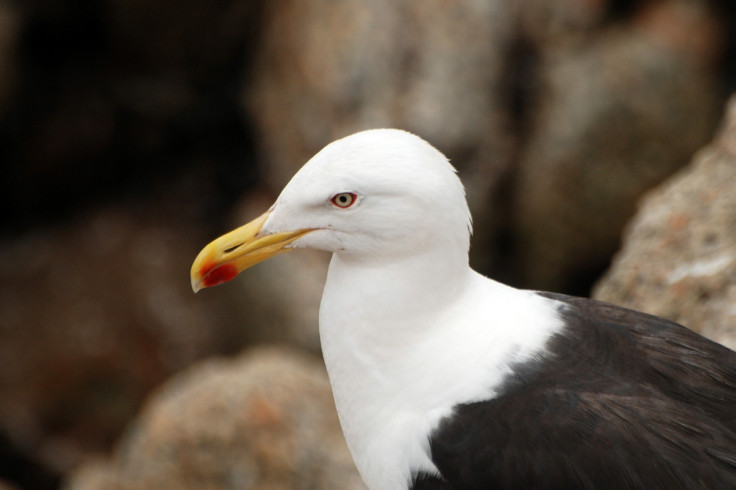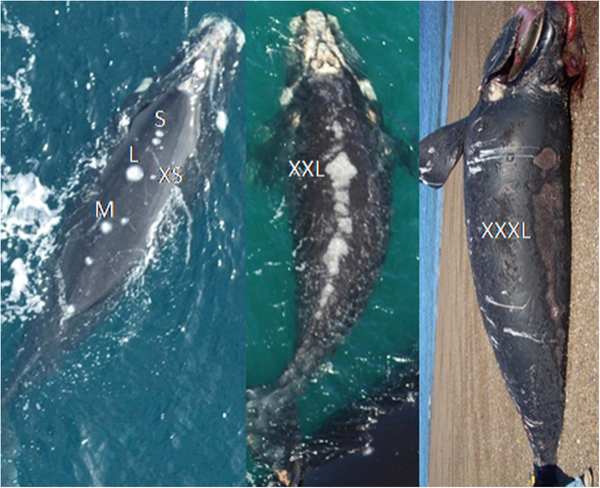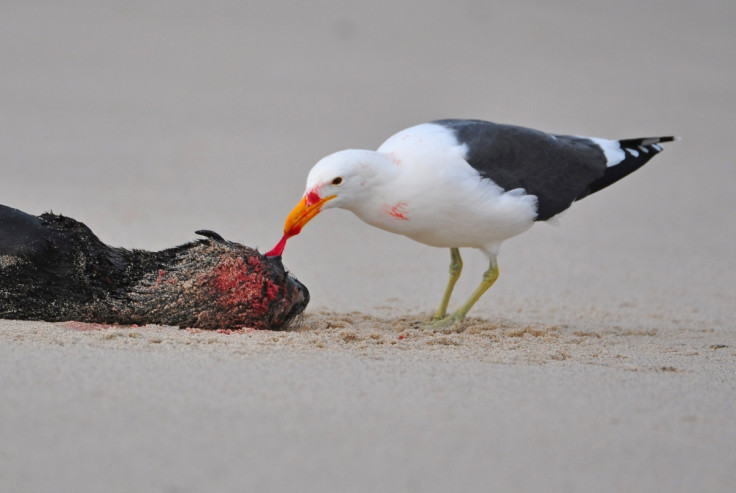Argentina: Hundreds of whale calves killed by Kelp gulls feeding on skin and blubber

The mystery surrounding hundreds of whale calf deaths off the coast of Argentina has been solved, with seagulls being at least in part to blame. Scientists say Kelp Gulls have been carrying out vicious attacks on southern right whale calves, feeding on their skin and blubber at the Península Valdés.
Southern right whales migrate from their feeding grounds in the summer to the low-latitude calving grounds in the winter, where females spend around three months with their new-borns. Until the 2000s, calve mortality was around eight deaths per year, with no more than 14 dead calves in any year since 1971.
However, at least 626 whale calves died at this calving ground between 2003 and 2013. The reason for their deaths remained unknown despite considerable research. US and Argentine researchers have now investigated their deaths by assessing aerial survey photographs of living mother and calf pairs between 1974 and 2011, and stranding photographs of the dead calves.
Published in the journal PLOS One, findings showed there had be a dramatic increase of gull attacks over the last 30 years, with the sea birds primarily targeting mothers and calves. They found that the percentage of live mothers and calves with lesions from attacks increased from just 2% in the 1970s to 99% in the 2000s.

Findings also showed that in the 1980s and 90s, mothers and calves had an average of one to five lesions. By the 2000s, calves were found to have nine or more and these cuts covered a greater area of their backs compared to their mothers.
The team said harassment by Kelp Gulls had previously been proposed as a possible contributor to calf deaths. Attacks of this kind were first reported at Península Valdés in the 1970s, when the gulls would occasionally pick at skin in the water or from whales backs. However, in the 1980s they became more aggressive, attacking the whales by gashing their skin – at this time, however, the mothers were the primary target, not the calves. In the following decade, both mothers and calves became targets.
"During an attack, a gull lands on a whale's back and gouges out skin, either opening a new lesion or enlarging a pre-existing one," the authors wrote. "During successive attacks, gulls widen and/or dig more deeply into the dermal and subdermal layers of skin, exposing blubber and creating lesions of various sizes and depths. Kelp-Gull attacks usually occur when whales are resting or surfacing to breathe and their backs are fully or partially exposed to the air."
They said some of the dead calves showed evidence of being attacked 25 times or more. Researchers say the mothers and calves subjected to attacks would spend less time nursing, playing and resting, and that the wounds could lead to dehydration, impaired thermoregulation, and energy loss.

"Intensified Kelp Gull harassment at Península Valdés could be compromising calf health and thereby contributing to the high average rate of calf mortality observed in recent years," they wrote. However, they also said the high variance in calf deaths since 2000 remains a mystery.
Kelp Gulls have been implicated in other marine mammal deaths. Earlier this year, research published in the African Journal of Marine Science showed how gulls have developed a new method of hunting seals – by tearing out their eyes so they can feast on them as they die. Researchers recorded around 500 instances of these attacks over the last 15 years.
Because blind seals cannot find help, they are easy targets for more sustained attacks. ""It is not a pleasant behaviour to observe, as the seals completely freak out and make a lot of noise," said lead author Austin Gallagher. "It's a cruel way to go."
© Copyright IBTimes 2025. All rights reserved.






















